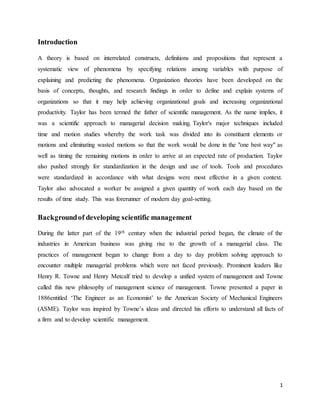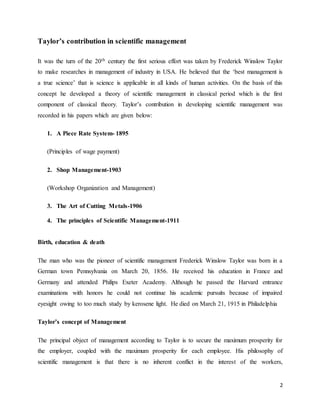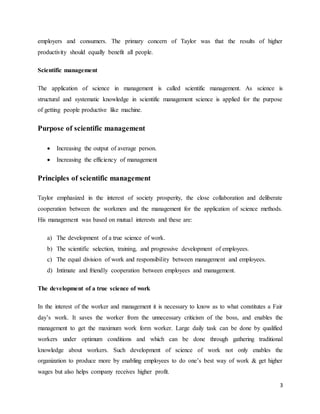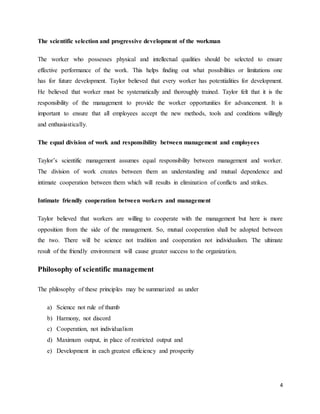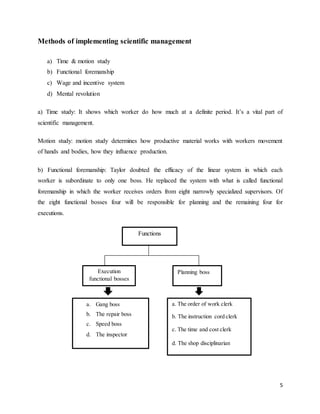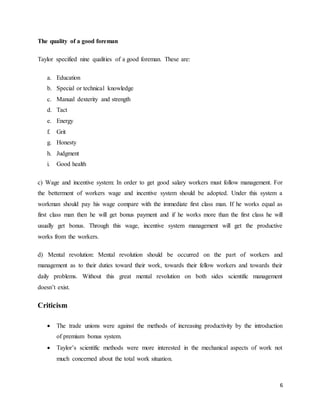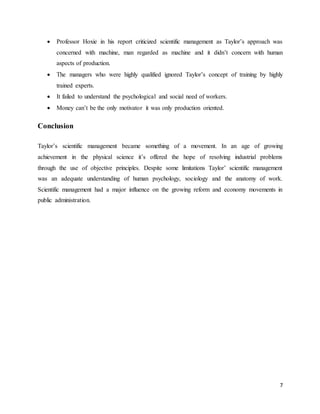1. Frederick Taylor is considered the father of scientific management. He developed theories and techniques to optimize productivity, including time and motion studies to determine the most efficient ways to perform tasks.
2. Taylor advocated for standardizing tools and procedures based on time studies to determine the most effective methods. He also pushed for assigning workers daily quotas based on these studies to incentivize higher productivity.
3. Taylor's scientific management principles included developing a true science of work, scientifically selecting and training employees, equally dividing work and responsibility between management and workers, and fostering intimate cooperation between the two groups. The goal was to increase overall efficiency and prosperity for both workers and employers.
